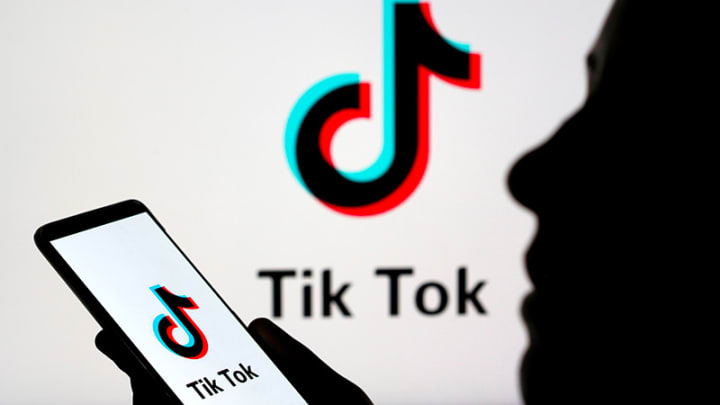Lily Roby
lr158117@ohio.edu
One of the Internet's key aspects is that it is a space for anyone to clearly speak their mind and connect with others, no matter the location.
This is especially seen on social media, where groups are created and bring together communities that can have real world impacts. Freedom of speech is practically essential to social media, yet some apps such as TikTok have been found censoring material based on unethical standards.
In late 2019, users found that when they attempted to post videos discussing the 2019-20 Hong Kong protests, their videos would be censored. This means that videos would either be deleted or 'shadowbanned,' which is a term to describe when one's "posts on a platform are rendered essentially invisible to everyone but themselves," according to The New York Times.
Recently leaked documents show that TikTok did have policies in place for moderators to remove videos mentioning Tiananmen Square, Tibetan independence, or banned religious group Falun Gong. The policy also bans a list of 20 foreign or sensitive figures, including Barack Obama, Donald Trump and Vladimir Putin.
TikTok claims to make these censorship decisions in order to minimize conflict on their platform, but some believe that these choices are made in order to further TikTok's Chinese parent-company ByteDance's political stances. President Donald Trump attempted to ban TikTok earlier this year, claiming with little evidence that the app is a national security concern because it gives "the Chinese government access to vast amounts of US citizens' data."
 |
| The TikTok app hosts around 500 million users internationally. Photo Credit: REUTERS/Dado Ruvic |
TikTok's censorship of pictures and video could be considered unethical because it takes away a key element of social media, its freedom of speech. While some content should certainly be banned, videos of current protests shouldn't be banned because that simply eliminates coverage of current events and the spread of information.
The video-sharing app was also caught in another data leak, exposing that their moderation policies included not promoting videos of people deemed ugly, overweight, disabled or poor. In the leak, the policy states that videos where "the character's appearance or the shooting environment is not good, the video will be much less attractive, not worthing to be recommended to new users."
Banning people fitting in these categories this in order to gain more TikTok users and therefore more advertising revenue puts the interests of TikTok ahead of their people. TikTok as a company cannot claim to want to increase diversity, as they did in June, and then even go as far as to censor LGBTQ content in countries such as Bosnia, Jordan and Russia.
Journalists must work to fight censorship and unethical moderation. Social media apps that ban content according to companies' personal interests shape the minds of users and their perceptions of the world even if it is unintentional. Truth is what all media and news organizations should strive for.
Lily, I constantly find myself scrolling on TikTok so I found your blog post very interesting. I was unaware of that the app had a policy restricting certain types of videos to new users. I think this is wrong because no one should be discriminated against. I think the only reason the app should take control is if the video is inappropriate or contains violent material.
ReplyDeleteThis was such a cool post, Lily! Social media has given us the opportunity to connect with people we relate to that we may never have had the chance to meet in real life, and the restriction of content can keep people from knowing that there are people out there just like themselves. In the case of TikTok censoring LGBTQ+ content, I think this not only keeps LGBTQ+ people from seeing content that they can relate to, but it also keeps them from knowing that there are other people out there who identify like themselves-- which can be especially crucial for LGBTQ+ kids.
ReplyDeleteI am obsessed with TikTok currently so this was a really fascinating read for me. I had no idea that they were restricting videos about the Hong Kong protests and Tiananmen Square in the US. One of my friends from high school was an exchanged student from China and I remember her showing me how if she typed certain things (like Tiananmen Square) into her search engine on her phone, nothing would show up. So while knowing that, I wasn't too shocked upon reading this but it is still crazy. I personally think it is no coincidence that those topics were shadowbanned on TikTok despite what the execs said.
ReplyDeleteThis was such a great post Lily! I really enjoyed reading this due to the simple fact that I love TikTok right now. I have seen some things about there policy restricting some posts or how some people talk about how their video was taken down. I think that the app should take control of the content being posted if it something that truly will harm the public but not for the way that people look. I think that is appalling.
ReplyDeleteI really liked this post! As someone who uses TikTok nearly everyday, I have seen a lot of people complain about some of the policies restricting their posts as well as their videos being shadow banned. Also reading about them banning some of the content featuring LGBTQ members in places like Russia is really terrible and I think TikTok should make a stance to those countries. Also they should do a better job with deleting content deemed to hateful.
ReplyDelete